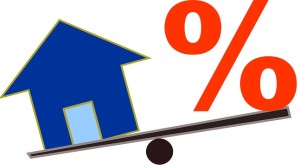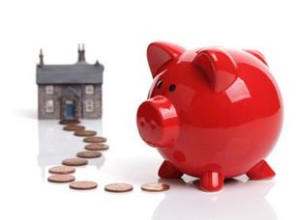December 14, 2016
 When you find that house of your dreams, the first thing that springs to mind is to apply for home loan since it’s your ticket to funding the big purchase. But sometimes, loan applications get rejected for various reasons, among which the most common is a low CIBIL or credit score. It is major factor that determines your loan approval, loan amount and even rate of interest.
When you find that house of your dreams, the first thing that springs to mind is to apply for home loan since it’s your ticket to funding the big purchase. But sometimes, loan applications get rejected for various reasons, among which the most common is a low CIBIL or credit score. It is major factor that determines your loan approval, loan amount and even rate of interest.
Why is high and low credit score important?
While a high credit score is viewed as a low probability of a default, a low credit score reflects the opposite, making financial institutions wary of the person applying for a home loan.
Credit score is a three digit number that ranges between 300 and 900. It reflects your creditworthiness as it is a summary of your payment history, outstanding balances, number of loans, total credit limit, credit utilization, every loan detail taken from different lenders. Higher credit scores are great for you if you are applying for a home loan. On an average, a credit score of 750 is great for borrowers as lenders find themselves at less risk. Moreover, at this score, you can get good deals on your home loan and better rates of interest.
Your credit score is impacted positively by:
● Consistent payment of loan EMIs
● Credit card bill payments on time
● No over-leveraging
● Payment of credit card bills in full as opposed to minimum due amount each time
● Good financial records
● Many types of credits, especially unsecured personal loans in family
● Good utilization of credit limit on cards
Your credit score is impacted negatively by:
● A lot of credit report enquiries by banks and financial institutions
● Dishonoured or bounced cheques
● Loan repayment irregularity
● Defaults on credit repayments and even defaulting as a guarantor
● Late payments on credit cards or making part payments consistently
● Number of unsecured credit (multiple personal loans)
● Numerous applications for unsecured loan, especially when rejected
● Going beyond the approved credit limit and even high utilization of it
Other than these, your credit score can also be impacted negatively when banks or financial institutions you are dealing with make errors in their records. Hence, it’s important that you keep checking whether or not your banks are submitting the right information. It comes really handy if you request and maintain a copy of your credit history personally as compared to a financial institution doing that for you.
Tags:
Debts,
economy,
Home Loan,
Interest Rates,
investments,
loans,
money,
Mortgages
December 13, 2016
 CIBIL Score is a crucial aspect in determining your home loan eligibility. Every time you apply for home loan, your lender checks this score for approving/disapproving your application. It is a summary of your credit history as per your credit behaviour. It depends on the following factors:
CIBIL Score is a crucial aspect in determining your home loan eligibility. Every time you apply for home loan, your lender checks this score for approving/disapproving your application. It is a summary of your credit history as per your credit behaviour. It depends on the following factors:
Past payments: All your previous payments, whether on time or delayed, are recorded with CIBIL. Consistency in making payments is considered good whereas more recent delays are seen negatively.
Settlements, defaults and write-offs: Multiple write-offs, defaults on previous loans and more recent write-offs (as opposed to older ones) have negative effects on your credit score. Defaults and delays on secured loans are worse than on unsecured loans.
Credit as proportion of income: The higher the loan balance you have, the lower your credit score will be. Less loan balance shows smart credit utilization on your part.
Credit cards: If you have high credit card balances, your credit score will be low. Consistency in repaying credit card debts improves the score. Credit cards (unsecured loans) are viewed negatively by lenders as compared to secured loans.
Different ranges of CIBIL Score
Every person with a financial history has a CIBIL score and it can range anywhere between 300 and 900, with 900 being the highest. A person can also have a score of 0 or -1, which means that they have no credit history in terms of loans and credit cards. So to get the credit history started, you must have at least one credit card or applied for a loan. Here is a breakup of CIBIL scores and what it means:
- 550 – 650: It is a fair score and accepted by many lenders. This score shows that you have been quite regular with your repayments, other than a few exceptions. Most lenders trust borrowers with this score and approve their home loans but usually with a higher interest rates.
- 300 – 550: This is the worst score anybody can have and it means that you have been defaulting on your payments. With such a score, getting credit is extremely difficult.
- 650 – 750: For home loan eligibility, this score is very promising. And if you have this credit score, you will not face any issue regarding approval of application.
- 750 – 900: It is the best possible score anybody can have and it indicates your expertise at managing your finances. Lenders will approve even a larger loan amount to you at great rates when you apply for home loan.
Tags:
Debts,
economy,
Home Loan,
Interest Rates,
investments,
loans,
money,
Mortgages
October 12, 2015
 Home loan India is the perfect option for those who want to get a place of their own and do not have the necessary funds to pay the entire amount. For people who have a decent monthly income, this can be really easy however for those who have a fluctuating income it can be a real challenge at times.
Home loan India is the perfect option for those who want to get a place of their own and do not have the necessary funds to pay the entire amount. For people who have a decent monthly income, this can be really easy however for those who have a fluctuating income it can be a real challenge at times.
The different factors for the housing loan evaluation
To evaluate the kind of housing loan a person is eligible for, there are a few factors that play a vital role. They are
The individual’s job and field- There are certain fields that are not permitted to get a loan due to the nature of the way the field operates. This is called Negative professions. This is one of the main reasons why financial institutions need to know the field that the person work’s in.
Property location – Knowing where the property is located is also another important factor. Just like how there are black listed professions; there are also blacklisted areas as well as limits that are set.
Personal history of the person – This helps the loan company to know how the house operates as well as the number of earning members that are there in the family. This also helps them to know if the person has any other loans taken out elsewhere and help them to determine the creditability of the person’s ability to pay back.
Required documentation to take out a home loan India
Income Proof – Be it a single borrower or a joint one, the income proof is used to make the necessary evaluation and decide how much loan can be given to a person as well as the monthly repayment.
Personal identification Proof – This includes the person’s driving licence / their voter ID/ Pan Card/ Aadhaar card/ passport etc
Resident Proof – If it is a second home, then the person can submit the present address proof which can be in the form of the electricity bill / passport/ receipts towards the property tax paid etc. In the case of the first ownership, then a letter can be taken directly from the builder if it is a new or ongoing project or after the registration is completed.
Business Proof- This is applicable for those who own a business and want to go ahead and apply for a loan.
Experience Proof – Some banks require a letter from the place of employment where they have the experience of a certain amount of time at the present company.
Age Proof – Different banks have different age criteria’s to give different kinds of loans as well as the tenure and amount of the loan.
Property documents – This would include all the various documents such as the sale deed, registration deed, NOC (society or builder), Occupation Certificate etc.
Buying a house requires a lot of finance which has to be paid either in full or in installments depending on the kind of property you choose, home loan India gives you a financial backup to live your dream.
Tags:
budgeting,
Debts,
economy,
financial planning,
Home Finance,
Home Loan,
loans
March 26, 2013
 Being mortgage free is the paradise that all mortgage holders are looking for, and thousands of people every year decide to over pay on their mortgage to help them achieve this goal. Whether this overpayment is a lump sum, or one or two extra payments over the course of a year, reducing your mortgage will help you to save later on in life.
Being mortgage free is the paradise that all mortgage holders are looking for, and thousands of people every year decide to over pay on their mortgage to help them achieve this goal. Whether this overpayment is a lump sum, or one or two extra payments over the course of a year, reducing your mortgage will help you to save later on in life.
However, does the notion of paying off your mortgage early distract you from putting money away in a savings account? At the end of the day, what is a better position to be in – mortgage free with no savings, or savings and a hefty mortgage? Let’s take a look at the pros and cons of paying or your mortgage, or saving the money instead.
Savings
Before you make a decision about whether or not to save or spend, first consider whether you have enough of a savings fund to build on. In order to cover any emergencies, it’s always recommended that you have at least four to six months’ worth of savings in the bank. Even if you do have a decent amount of money to fall back on, that still doesn’t mean that you should spend it on paying off your mortgage, or clearing a decent chunk of it at least.
Before using this money to pay off your mortgage, consider paying off any other debts you have, like credit cards or other financing debts. These expenditures will typically have higher rates of interest, meaning you’ll be saving yourself money in the long run if you pay these amounts off. Only then should you consider paying off your mortgage with your savings. There could be early-repayment penalties if you decide to clear some of your mortgage, so always seek the advice of your m
Making Sense Of It All
In order to choose saving your money over paying off your mortgage, your savings account would have to offer better interest rates compared to the money you would save reducing your mortgage debt in the long run. If we take a look at the best mortgage deals verses the current interest rates across the typical high street savings accounts, saving your money wouldn’t be advisable.
As interest rates are very low at the moment, you’ll certainly be paying more interest on your mortgage repayments compared to the money you would save with your savings account. Getting an ISA savings account is key if you want to avoid income tax on savings interest, but again, what you are able to save in a savings account must also be compared to what you would knock off your mortgage in the long run.
If you are able to make monthly overpayments on your mortgage, then you could find that you’re making quite a saving on your debt. Over a typical 25 year mortgage, a homeowner could save over £8,000 just by making an extra £50 payment every month, based on a £150,000 mortgage. Furthermore, the more you can pay off on top of your monthly repayments, the more you’ll save!
Tags:
debt,
financial planning,
Home Loan,
Interest Rates,
money,
mortgage
April 16, 2012
 You may be one of the many who are tired of renting. Or you may be someone who’s about to be married and saving for that wonderful place you intend to call home. Will owning a house you can call your own remain a dream? It doesn’t have to be. There are many ways to make this dream become a reality for you. It’s just a matter of putting things in order. All these considerations may sound complicated, but they’re actually not. Just like everything else in life, it’s simply a matter of “looking at the bigger picture” and then breaking them down into smaller pieces, working on accomplishing each piece slowly but consistently.
You may be one of the many who are tired of renting. Or you may be someone who’s about to be married and saving for that wonderful place you intend to call home. Will owning a house you can call your own remain a dream? It doesn’t have to be. There are many ways to make this dream become a reality for you. It’s just a matter of putting things in order. All these considerations may sound complicated, but they’re actually not. Just like everything else in life, it’s simply a matter of “looking at the bigger picture” and then breaking them down into smaller pieces, working on accomplishing each piece slowly but consistently.
How to Begin
Start with a well designed plan. First, you have to decide on the basic four: 1) the type of house you want; 2) the location; 3) are you building or buying? and 4) How much is your budget?
Knowing the type of house you want is very basic because building a house, or buying a finished one is not something you do everyday. And so a lot of thought has to be put into considerations such as size and functionality. To address these two concerns, think about your family now, or your family five to ten years from now. What’s the size of your family? How many children do you have? Will you have more in the coming years? How many bedrooms do you plan to have? How big will be the kitchen? Or the dining room? How many bathrooms? All these may sound very simple, but if left unconsidered, it will have an effect later on.
The location of the house is also crucial. More than considerations on distance from your workplace and the school, location also determines the value of the land where you intend to build your house (or where the house you intend to buy is already built). This adds up to the actual cost of the house.
Know the amount of the house you want – even of it’s a rough estimate. Knowing and seeing the amount will help you and guide you in your decisions.
From there, you can now proceed by asking your self this question: can you afford it? If through your pencil pushing you realize that you can’t afford it, then at least the knowledge will help you make some adjustments. Moreover, although you may not have the money now, in lump sum, but there is a way. There are home loans available for those who can afford it in the long haul …
What to Do Next
First, evaluate your finances to find out how much you have, and if you need to get a loan, how much you need to borrow. Second, be familiar with the different lenders in your area and find out as much as you can about them. Do Internet research and visit deifferent websites. Make comparisons. Identify which amongst the many lenders can help you best. Find out about the different home loans they’re offering, their interest rates, the benefits of their loans, and many other information necessary before you make your decision. You can also consult a local mortgage broker for additional information.
Bottom line, there is help out there. Just find the best one, and start working to own the home you’ve always wanted.
Tags:
financial planning,
Home Loan,
House Loans,
loans,
money,
mortgage
 When you find that house of your dreams, the first thing that springs to mind is to apply for home loan since it’s your ticket to funding the big purchase. But sometimes, loan applications get rejected for various reasons, among which the most common is a low CIBIL or credit score. It is major factor that determines your loan approval, loan amount and even rate of interest.
When you find that house of your dreams, the first thing that springs to mind is to apply for home loan since it’s your ticket to funding the big purchase. But sometimes, loan applications get rejected for various reasons, among which the most common is a low CIBIL or credit score. It is major factor that determines your loan approval, loan amount and even rate of interest.




Recent Comments